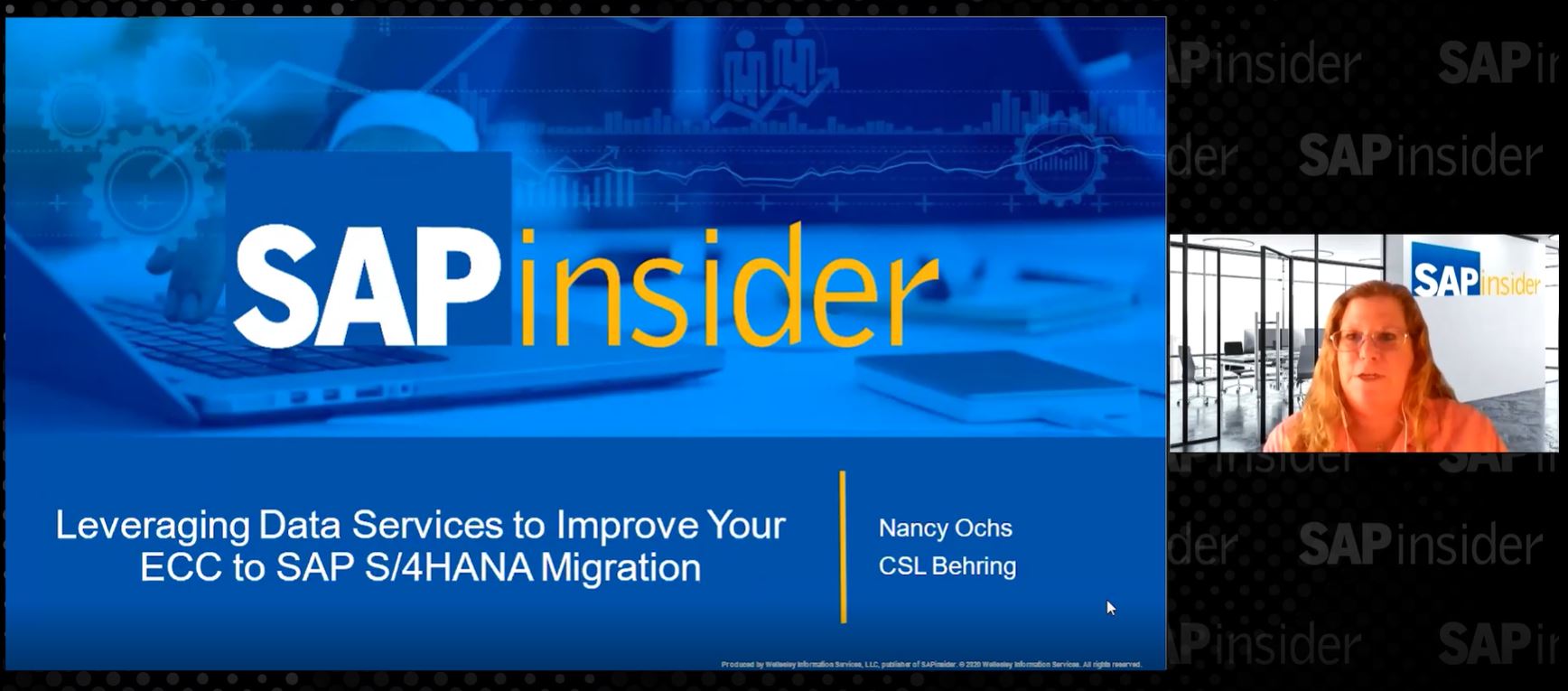Data Management Tools in SAP EIM Portfolio – Part 2
Meet the Experts
Key Takeaways
⇨ SAP Data Services stands as a cornerstone within the SAP Enterprise Information Management (EIM) portfolio, offering robust capabilities for data integration and transformation.
⇨ SAP Information Steward serves as a pivotal tool for data governance and quality management. Embedded in the SAP Enterprise Information Management (EIM) portfolio, it empowers organizations with a wide array of functionalities to establish and uphold data governance policies, monitor data quality, and conduct profiling and cleansing operations
⇨ By providing a comprehensive view of data quality and governance, SAP Information Steward enables organizations to unlock the value of their data assets and drive better business outcomes.
SAP Data Services
SAP Data Services stands as a cornerstone within the SAP Enterprise Information Management (EIM) portfolio, offering robust capabilities for data integration and transformation. Equipped with a diverse array of tools, it facilitates the extraction, transformation, and loading (ETL) of data from disparate sources, guaranteeing data integrity and reliability for analytics, reporting, and operational workflows. This software empowers organizations to maintain data consistency, enhance data quality, and seamlessly integrate data across heterogeneous systems, thus fostering efficiency and reliability in their data operations.

SAP Data Services Architecture
Key Features and Capabilities of SAP Data Services
Data Extraction: SAP Data Services enables data extraction from a wide range of sources, including relational databases, flat files, XML files, web services etc. It supports both batch and real-time data extraction, allowing organizations to access data on time.
Data Transformation and Cleansing: SAP Data Services provides a robust set of data transformation and cleansing capabilities. It allows organizations to define data transformation rules, perform data validation, standardization, enrichment, and cleansing operations, ensuring data accuracy, consistency, and integrity.
Data Quality Management: SAP Data Services includes comprehensive data quality management features. It allows organizations to profile and analyze data to identify data quality issues, such as duplicates, inconsistencies, and missing values. It provides data cleansing functions to improve data quality and allows for the creation of data quality rules and workflows for ongoing monitoring and maintenance.
Data Integration and Consolidation: SAP Data Services facilitates the integration and consolidation of data from diverse sources. It supports complex data integration scenarios, including merging data from multiple systems, harmonizing data structures, and resolving data conflicts. It helps organizations create a unified and consistent view of their data assets.
Data Governance and Metadata Management: SAP Data Services provides capabilities for data governance and metadata management. It allows organizations to define and enforce data governance policies, manage data lineage, and track data changes. It provides a centralized metadata repository for documenting and managing data structures, transformations, and mappings.
Advanced Analytics and Text Processing: SAP Data Services offers advanced analytics capabilities, allowing organizations to perform complex data transformations, calculations, and aggregations. It includes built-in functions for statistical analysis, predictive modeling, and data mining. Additionally, it supports text data processing, enabling organizations to extract valuable insights from unstructured textual data.
Integration with SAP and Non-SAP Systems: SAP Data Services seamlessly integrates with various SAP systems, including SAP ERP, SAP BW/4HANA, and SAP HANA. It also supports integration with non-SAP systems, enabling organizations to leverage their existing IT landscape and connect with a wide range of external applications and databases.
Workflow and Job Scheduling: SAP Data Services provides a graphical interface for designing and managing complex data integration workflows and job scheduling. It allows organizations to define data integration workflows, set dependencies, and schedule jobs to automate data extraction, transformation, and loading processes.
SAP Data Services empowers organizations to effectively manage and integrate their data assets, ensuring trusted and high-quality data for informed decision-making. With its robust features and capabilities, SAP Data Services plays a critical role in data-driven digital transformations and enables organizations to maximize the value of their data.
SAP Information Steward
SAP Information Steward serves as a pivotal tool for data governance and quality management. Embedded in the SAP Enterprise Information Management (EIM) portfolio, it empowers organizations with a wide array of functionalities to establish and uphold data governance policies, monitor data quality, and conduct profiling and cleansing operations. By ensuring data accuracy, completeness, and consistency, SAP Information Steward facilitates enhanced decision-making and regulatory compliance for organizations, making it an indispensable asset in managing their data assets effectively.

SAP Information Steward Architecture
Key Features and Capabilities of SAP Information Steward
Data Profiling: SAP Information Steward allows organizations to profile their data to gain insights into its quality, structure, and content. It provides data profiling techniques to assess data completeness, accuracy, consistency, and uniqueness. Data profiling helps organizations understand the overall quality and health of their data assets.
Data Quality Monitoring: SAP Information Steward enables ongoing monitoring of data quality to ensure that data meets predefined standards and business rules. It provides data quality scorecards, dashboards, and reports to track data quality metrics and identify areas that require attention or improvement.
Data Cleansing and Remediation: SAP Information Steward supports data cleansing activities to address data quality issues. It provides data cleansing functions to standardize, validate, correct, and enrich data based on defined rules and policies. Data remediation workflows help organizations resolve data quality issues systematically.
Data Governance and Policy Management: SAP Information Steward allows organizations to establish data governance frameworks and policies. It enables the definition, enforcement, and management of data governance rules, standards, and policies. It provides a centralized repository to document and communicate data governance guidelines.
Metadata Management: SAP Information Steward offers capabilities for metadata management, enabling organizations to capture, manage, and govern metadata across their data assets. It provides a metadata repository to document data structures, mappings, lineage, and business glossaries. Metadata management ensures consistency and understanding of data definitions and relationships.
Business Glossary: SAP Information Steward includes a business glossary feature, which allows organizations to define and manage business terms and their definitions. It facilitates clear communication and shared understanding of data elements and their meanings across the organization.
Data Lineage and Impact Analysis: SAP Information Steward provides data lineage and impact analysis capabilities. It helps organizations trace the origin and flow of data, understand the dependencies between data elements, and assess the impact of changes. Data lineage supports regulatory compliance, data troubleshooting, and change management.
Data Quality Dashboards and Reports: SAP Information Steward offers prebuilt and customizable dashboards and reports to visualize and communicate data quality metrics, trends, and issues. It enables stakeholders to monitor and track data quality performance, make informed decisions, and take necessary actions to improve data quality.
SAP Information Steward empowers organizations to establish robust data governance practices, improve data quality, and ensure compliance with regulatory requirements. By providing a comprehensive view of data quality and governance, SAP Information Steward enables organizations to unlock the value of their data assets and drive better business outcomes.










